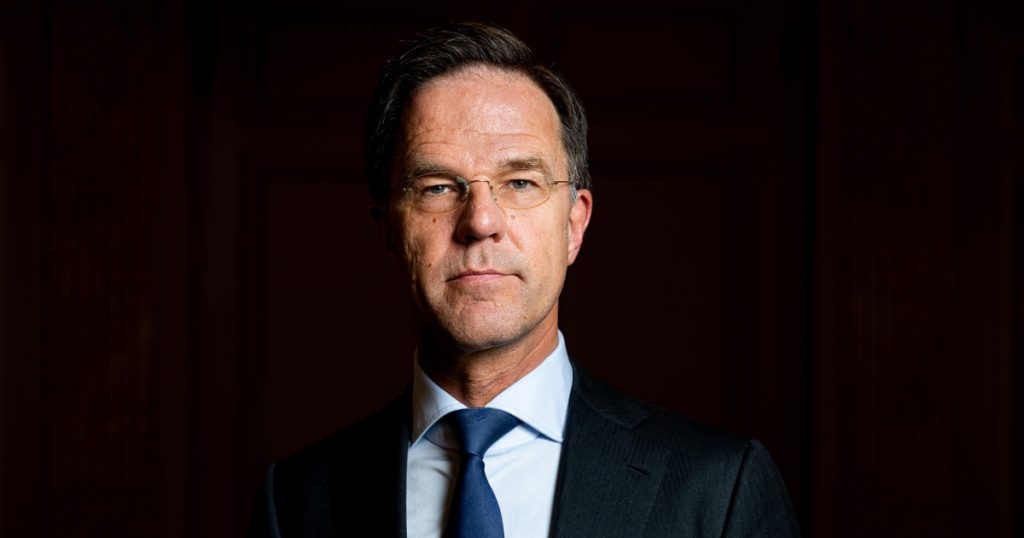NATO allies have selected Dutch Prime Minister Mark Rutte as the next Secretary General of NATO, succeeding Jens Stoltenberg. Rutte’s appointment was confirmed after his only rival for the post, Romanian President Klaus Iohannis, withdrew from the race. Rutte will assume the role on October 1, 2024, following Stoltenberg’s ten-year term as head of the Alliance. Rutte, who has been a strong supporter of Ukraine and a critic of Russian President Vladimir Putin, gained early support from key NATO members such as the United States, Britain, France, and Germany.
Rutte’s selection was not without its challenges, as some Eastern European countries initially argued that the post should go to someone from their region for the first time. Despite this, they eventually supported Rutte, recognizing his leadership qualities and alignment with NATO’s goals. Stoltenberg, the outgoing Secretary General, expressed confidence in Rutte’s ability to lead the Alliance, describing him as a true transatlanticist, strong leader, and consensus-builder. Rutte, who will be stepping down from Dutch politics after 14 years as Prime Minister, will need the backing of all 32 NATO members to officially assume the role.
As the new Secretary General, Rutte will be tasked with maintaining support for Ukraine in its conflict with Russia while avoiding direct involvement in the war. Additionally, he will need to navigate the uncertainty surrounding the future U.S. stance on NATO, particularly in the event that Donald Trump, a NATO skeptic, returns to the White House after the upcoming U.S. presidential election. Trump’s previous questioning of U.S. commitment to NATO’s mutual defense clause has caused concern among NATO leaders, who are seeking reassurance of continued American support for the Alliance.
One of Rutte’s key challenges will be balancing NATO’s support for Ukraine with the need to prevent escalation of tensions with Russia. The ongoing war in Ukraine has raised concerns about the possibility of NATO being drawn into direct conflict with Moscow. Rutte will have to navigate these complex geopolitical dynamics to ensure the Alliance’s unity and effectiveness in addressing security threats in the region. His experience as a leader and his track record of advocating for transatlantic cooperation will be crucial in managing these challenges and maintaining NATO’s relevance in an evolving security landscape.
Rutte’s appointment as Secretary General comes at a critical juncture for NATO, with the Alliance facing multiple security challenges in Europe and beyond. The war in Ukraine, Russia’s aggressive behavior, and the potential return of a NATO-skeptic U.S. President all pose significant threats to NATO’s cohesion and effectiveness. Rutte’s leadership will be essential in guiding the Alliance through these challenges and strengthening its collective security capabilities. As he prepares to take on his new role, Rutte will need to demonstrate strong leadership, diplomatic skills, and strategic vision to steer NATO through a period of uncertainty and maintain its role as a cornerstone of transatlantic security cooperation.
In conclusion, Mark Rutte’s appointment as the next Secretary General of NATO marks an important milestone for the Alliance as it navigates complex geopolitical challenges and uncertainties. With his experience, leadership qualities, and commitment to transatlantic cooperation, Rutte is well-positioned to lead NATO through a critical period and uphold its core values of collective defense and security. As he prepares to take on this new role in October 2024, Rutte faces a daunting task of balancing competing interests, maintaining unity among member states, and adapting NATO’s strategies to address evolving security threats. His success in addressing these challenges will be crucial in ensuring NATO’s relevance and effectiveness in safeguarding the security and stability of the Euro-Atlantic region in the years ahead.


